A Spanish sanctuary: living well at sublime Andalucia agroturismo La Donaira
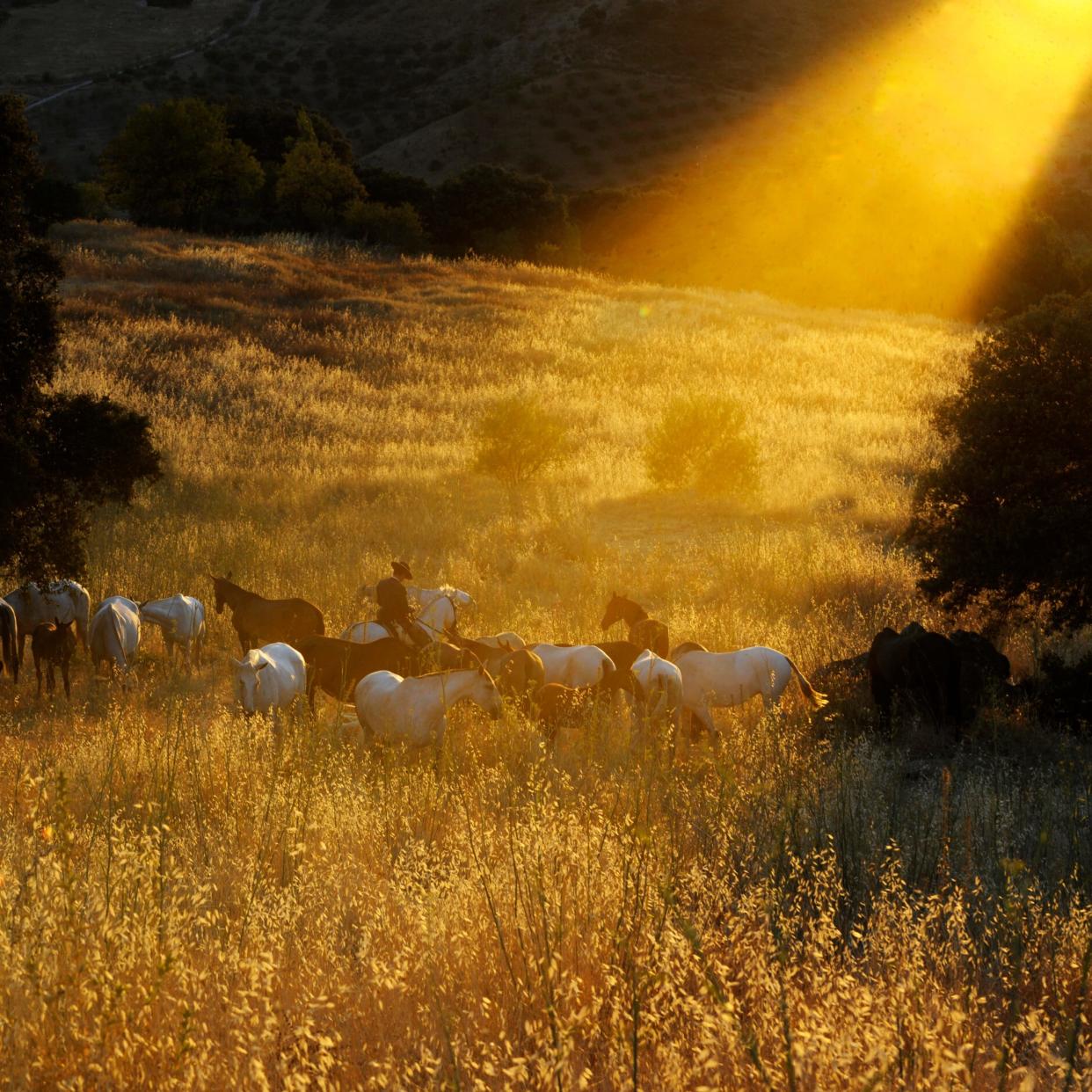
“How did you find out about this place?” This is the opening question of most guests of La Donaira, meeting for the first time for breakfast at the communal table in the kitchen of this homely farmhouse hotel, situated on the site of a biodynamic farm in the mountains of Andalusia. For this old Spanish cortijo (farmhouse), which holds just nine bedrooms, some yurts, a sybaritic spa and two spring-water-fed swimming pools, is still relatively unknown. The answer most guests give is “by word of mouth”.
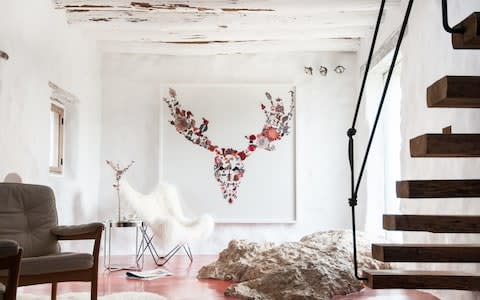
La Donaira has been operating for the last two-and-a-half years as an eco-friendly farm with rooms, part of the growing trend of boutique agroturismos – agricultural hospitality which celebrates farm-to-table food, a laid-back vibe and, above all else, authenticity. It’s popular in places such as rural Italy and Ibiza, but this is the first such premises in this part of Andalusia, located in the middle of the dramatic Sierra de Grazalema Natural Park, framed by craggy-faced mountains and undulating green farmlands.
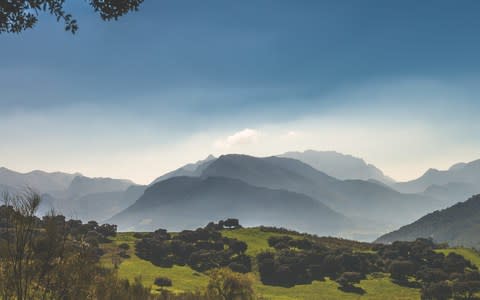
Though rusticity reigns across the house – think worn brown leather seats, wreathes of dried flowers, trough-like sinks and beamed ceilings – the style is very much country living for the finely tuned design eye. Beni Ourain rugs lie across flagstone floors, four-poster beds sit next to Maria Vargas paintings and copper bathtubs, and a Seventies theme pervades the lounge, all low sofas, shaggy rugs and chrome lamps.
In one of the yurts there’s even a pair of purple armchairs from the set of 2001: A Space Odyssey. In another, a panel can be opened above the bed for stargazing at night. It’s stylish without being self-conscious and it’s also fun – guests are encouraged to watch films on a big projector or sing on the karaoke machine.
But what stands out the most across the property are the huge picture windows reminding guests of exactly where they are. In the kitchen, a letterbox-shaped glass pane frames the peak of the neighbouring mountain (to which you can hike in a few hours). It’s like a moving painting out of Harry Potter – while eating your morning eggs you might see people riding horses past the window or farm workers driving in a buggy. Quotidian life has never been more spectacular.
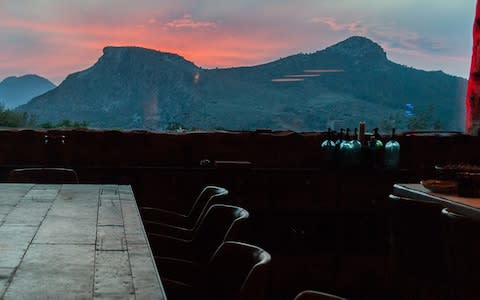
La Donaira’s biodynamic farm, which is based on the principles of Rudolf Steiner, remains the lynchpin of everything. When the farm was taken over in 2005, they set to work on regenerating the soil – something that remains integral today. Their soil school teaches local farmers better practices through lectures and workshops by experts in permaculture, and the estate’s cattle are Pajuna, the oldest-known domesticated breed of cow, whose rich manure is used to fertilise the land.
It’s a valiant effort to improve things in an area which is known not only for its over-farming, but also for its excellent terroir for winemaking. La Donaira produces its own bottles, available in their cellar, which also features other biodynamic and organic producers from around the world. There are always a few open bottles on rotation for guests to try – expect generous pours from kind-eyed Bienvenido, the maître d’.

Olive oil is hand-picked and pressed on site. There are hens for eggs and sheep for milk and cheese, plus a vegetable garden next to the house. Indeed, it’s not unusual to see the sous-chef running around with scissors looking for kale, as I did a few hours before dinner one evening.
As such, head chef Fabienne’s cooking is 70 per cent vegetarian. During my stay, dishes at the communal lunches and dinners (both three courses), featured sunshine-yellow corn pancakes loaded with feta, beetroot and Chinese rocket; rice-paper spring rolls with zingy mango vinaigrette; wild sorrel soup with delicate homemade crackers; and chicken served with fragrant capers and salty black olives.
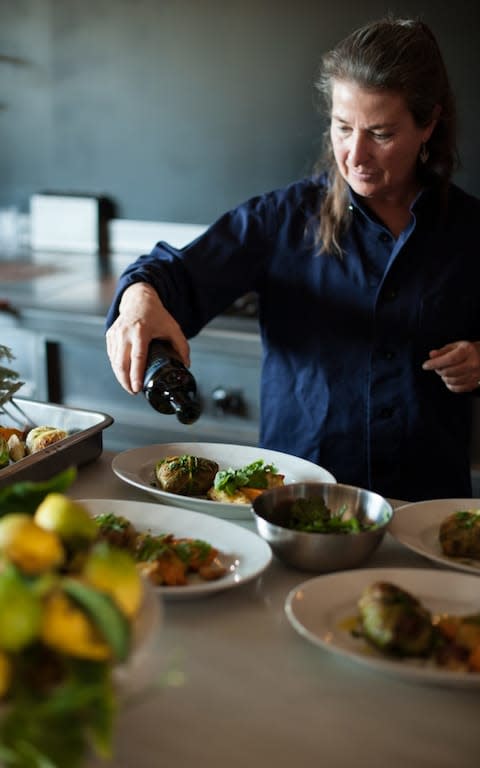
Everything is fresh, and the few things that aren’t from the farm are sourced from a local producer. Breakfast fares just as well. Tables are piled with jars of nuts, seeds, dried fruit and the farm’s honey for bircher muesli, plus there’s mashed avocado and all the ingredients for pan con tomate (grated tomato on crusty, freshly baked bread). Go for the boiled eggs with lemon crème fraîche off the à la carte menu, a punchy start to the day.
Most guests take things at a slow pace, spending their time touring the farm, hiking to the peaks of Grazalema and visiting (or riding) the farm’s regal Lusitano horses. You can also tour the medicinal garden, home to 200 species of plants, with the animated Xavier, who studied traditional medicine in China. You can ask him questions, such as how to make the homemade moisturiser found in the rooms, over a cup of lemon verbena tea, also plucked from the grounds.

Outside of the farm, you have many pueblos blancos (white villages named for the colour of their buildings) on your doorstep, such as the pretty Zahara, recently enlisted in the official ‘Association of the Most Beautiful Villages in Spain’. There’s also been cultural buzz around nearby Ronda, which this year received its first Michelin star for chef Benito Gómez at his eponymous restaurant. When I visited, the restaurant was closed ahead of high season, so I instead tried its sister tapas bar, Tragatá, for casual-but-elevated traditional tapas, such as foie gras with lentils and chorizo, and crispy calamari sandwiches on tiny black sesame buns.
Be sure, though, to leave enough downtime to spend in the beautifully placed spa. Its freshwater pool is framed by yet more windows that look out across the valley – plus it’s open 24 hours a day, meaning you can easily time yourself to be in the pool for sunrise or sunset. A separate treatment hut offers the likes of Swedish massage using the estate’s almond oil and facials by Spanish household brand Natura Bissé, which can be cleverly combined with natural concoctions – such as an aloe vera leaf mask and a lavender and brown sugar scrub.
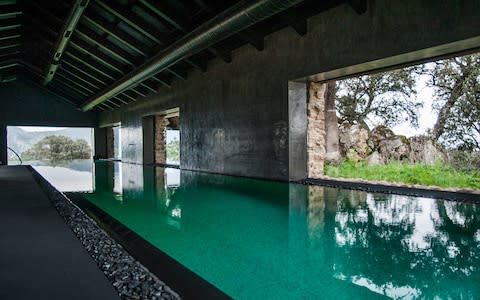
It’s an all-seasons place: by winter, cocoon yourself up in the spa’s wood-fired sauna; by summer, cool down from the Andalucían heat with a dip in the second (alfresco) mountain water-fed pool. A popular time to visit is in August, when the annual PAUSE festival takes place at the property.
Alongside food workshops, debates and wellbeing activities, such as Tibetan healing yoga and shiatsu, is a musical line-up which might include electro, flamenco and jazz – the Steinway in the living room is even moved to the open-air stage. An architectural residency programme could also be in the pipeline. It means that the heard-it-through-the-grapevine nature of La Donaira may, in future, ultimately (and unfortunately) cease to exist. You didn’t hear it from me.
Rooms at La Donaira cost from €250–€350 (£220 to £310) per person, per night, year-round on an all-inclusive basis, including all meals, drinks and snacks. Note that the minimum stay is two nights.

